Some 400 years ago, the Pilgrims set sail from England on board the Mayflower in search of a new, more accepting land. Although not the first residents of the area to settle—or even the first European visitors—the Pilgrims have long captured the nation’s imagination as the first Americans.
From the mythologized Thanksgiving to the journey towards religious freedom, the Pilgrims’ voyage and first years condense the ideals of America into a discreet narrative. These books about the Mayflower dig past the gloss and ideals into the daily lives of the Pilgrims aboard their craft and upon their arrival in the Americas, revealing a whole new side of the American vision.
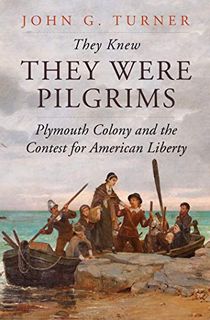
They Knew They Were Pilgrims: Plymouth Colony and the Contest for American Liberty
In They Knew They Were Pilgrims, Turner aims to reconcile two narratives of the pilgrims seemingly completely at odds with one another. In the first, the pilgrims are religious refugees from the Church of England who bravely set sail from Europe with the hope of finding religious freedom in America. In the other, they are religious zealots who separated from the Anglican Church only to viciously persecute the Native Americans whom they encountered upon their arrival.
Faced with juxtaposed accounts of these early founders of the United States, Turner seeks to provide the definitive history of the Pilgrims and Plymouth colony, one that neither praises nor excoriates them, but rather, tells how a variety of English settlers and Native peoples engaged in a contest for the meaning of American liberty.
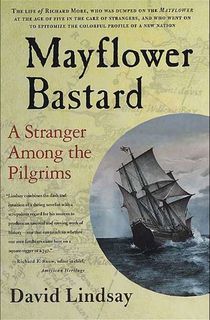
Mayflower Bastard
Mayflower Bastard is the true story of one decidedly unconventional passenger aboard the Mayflower. It all began when author David Lindsay set out to learn more about his distant ancestor, Richard More. The result is a colorful biography of More that reads like fiction, with all the rich detail of a well-researched work of history.
From his time as a child abandoned aboard the Mayflower to an adult amid the Salem witch trials, the dynamic More's live is peppered with lively episodes that are sure to entertain readers as much as enlighten them. Mayflower Bastard is the story of a generation of Americans, told through the lens of one very plucky individual.
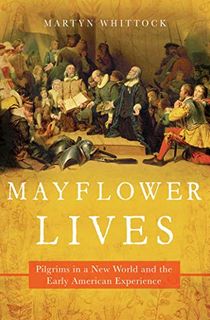
Mayflower Lives: Pilgrims in a New World and the Early American Experience
Another account of the pilgrims through the lens of the individuals that comprised them, Mayflower Lives broadens Mayflower Bastard's approach to illuminate the lives of 14 members of their company.
Mayflower Lives reacquaints readers with some of the most prominent real-life characters of the foundational national myth—Captain Jones, Myles Standish, and Tisquantum (Squanto). It also introduces readers to new ones, like Mary Chilton, the first woman to set foot on shore, and Stephen Hopkins, the decidedly un-Puritanical tavern keeper who kept his bar open on Sundays, to the chagrin of his fellow settlers.
Through the lives of these 14 individuals, Martyn Whittock casts the oft-told story of the Pilgrims in a new and deeply personal light.
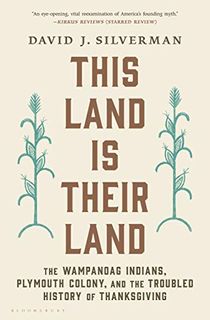
This Land Is Their Land: The Wampanoag Indians, Plymouth Colony, and the Troubled History of Thanksgiving
The story of the first Thanksgiving is deeply ingrained in American culture, but too often, it is told only with the Pilgrims in mind.
In This Land is Their Land, David J. Silverman takes a more pluralist approach to this founding national myth, accounting not only for the settlers of Plymouth Colony but also for the Wampanoag Indians who helped them survive, and who, after fifty years of unsteady truce, would pay dearly for it.
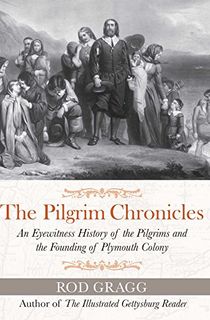
The Pilgrim Chronicles: An Eyewitness History of the Pilgrims and the Founding of Plymouth Colony
Nearly every American is familiar with the story of the Pilgrims—their flight from religious persecution in England, their landfall at Plymouth Rock, their first brutal winter, and the first Thanksgiving.
But for most of us, the story ends there. In The Pilgrim Chronicles, Rod Gragg fills in all the gaps left by this story through a compilation of letters, vivid memoirs, and other personal accounts straight from the Pilgrims themselves.
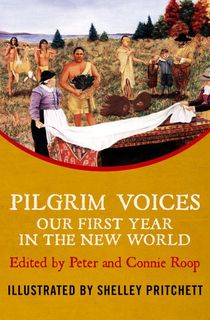
Pilgrim Voices
Though aimed at young readers and teens, this collection of diaries and other primary sources is an ideal starting point for those seeking to immerse themselves in the Pilgrims’ journey.
Peter and Connie Roop have assembled a narrative that begins with the voyage aboard the Mayflower and continues through the hard first winter of Plymouth Plantation. Read it alongside your children or as your first exposure to the real lives of the 102 individuals who set sail in 1620.

Mayflower
Nathaniel Philbrick has left a key mark on both the history of early America and on nautical history books. Mayflower, a Pulitzer Prize finalist, is his exploration of both the Pilgrims’ trip to Massachusetts Bay Colony and their effects on the “New World” after their landing through King Philip’s War. Philbrick also contextualizes the Pilgrims within the religious community of the day, and their impact on the history of the United States.

Of Plymouth Plantation
William Bradford penned this key narrative of the Pilgrims’ time in Plymouth. Although written in 1651, looking back at the years of struggle in Holland, England, and the New World, Bradford’s status as one of the respected leaders of the Pilgrims gives modern readers insight into the world as the immigrants encountered it.
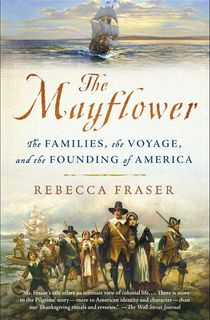
The Mayflower
Fraser frames her exploration of the Mayflower and the Pilgrims through the story of one family, making a well-trodden tale newly alive.
The Winslows, though perhaps less well-known today than the Bradfords or the Standishes, were a prominent family within the Plymouth colony and experienced many of the things that have come to be known as hallmarks of the community.

Plymouth Colony
In the first major exploration of Plymouth Colony, Stratton compiled compelling biographies of over 300 colonists between the years of 1620-1691. Especially meant to appeal to any genealogists, amateur or otherwise, this in-depth tale will charm any with a connection to the colonists or the Massachusetts area.

Making Haste from Babylon
Bunker, a British historian and writer, brings a British perspective to the Pilgrims' story. The author illuminates the Pilgrims’ voyage by exploring their lives before anyone dreamed of heading to the New World.
Although religious freedom is the ideal that most associate with the Pilgrims, the group was also invested in creating a new form of government through republicanism. Their glorification of hard work, business, and entrepreneurship also helped shape modern America as much as their religion, as Bunker deftly shows.
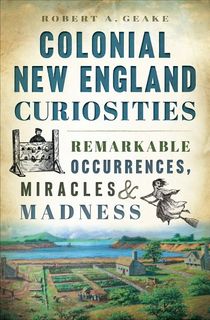
Colonial New England Curiosities
This pick isn’t just about the Puritans and the Mayflowers, but it is sure to entertain anyone with an interest in the colonial era of America.
If you’re looking for a lighter read that will nonetheless teach you many fascinating facts about the birth of America, you’ve found the next book on your to-be-read list.
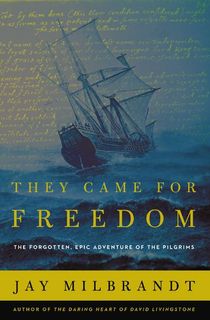
They Came for Freedom
Denouncing the widely held myths of pilgrims, Jay Milbrandt pieces together the true story of the courageous wayfarers. Beginning with the execution of two pastors who departed from the beliefs of the Elizabethan Church of England, to their dangerous journey for freedom across the Atlantic, unpack how the Pilgrim forefathers paved the way for American identity as it's now understood.
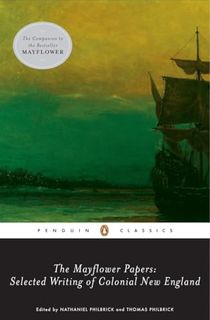
The Mayflower Papers
Together, National Book Award-winner Nathaniel Philbrick and his father, Thomas Philbrick, collect the most foundational and original works used in the writing of Mayflower.
From William Bradford's comprehensive history Of Plymouth Plantation to Benjamin Church's Entertaining Passages Relating to Philip's War, 1716, an insightful look into the battlefield, seventeenth-century New England is unveiled to readers like never before.
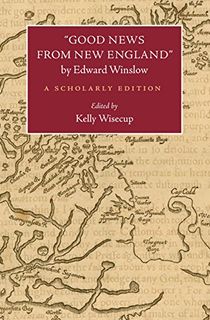
Good News from New England
One of the colony's earliest books, Edward Winslow chronicles the Pilgrims' third and second years at Plymouth. First published in 1624, the text was originally written to inform investors about the colonies' progress.
For many years, Winslow acted as the primary negotiator between the Pilgrims and New England Algonquians, and as such, in this firsthand account, he attempts to convince supporters in England of the group’s friendly relations. Although used as a persuasive tactic, Good News from New England nevertheless offers a comprehensive account of early life in the colony.
Featured photo: Wikimedia Commons










